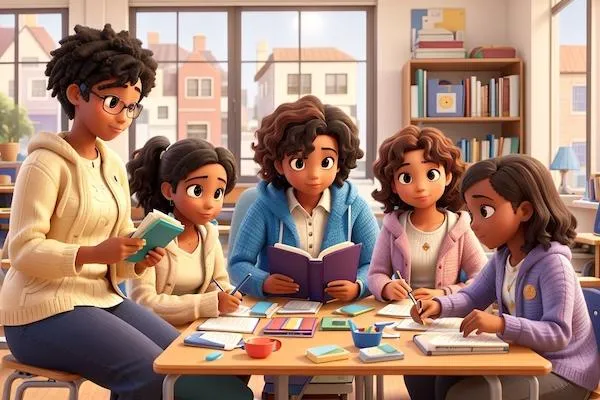
The COPE Squad: Empowering Students through Personal Coping Strategies
I have a vivid memory of sixteen-year-old Jessica. She had experienced multiple hospitalizations due to suicidal thoughts. Her mother, a professional, would encourage her to have occasional conversations with me at school and then explore various sources for "coping skills." One day, Jessica walked into my office carrying a three-inch thick notebook. She explained that she had attended yet another program that bombarded her with coping strategies and proudly showed me the notebook.
LM: That's quite a collection of coping skills. Which ones have you found helpful?
Jessica: None, really. They're all just ideas from people who think they know what's best for kids like me. It's honestly kind of insulting.
LM: I see.
Jessica: Yeah, my mom believes that these programs and handouts will magically prevent me from hurting myself. But they won't. I have to figure out my own way.
LM: And what is your way?
Jessica: Crocheting is something I learned how to do a month ago.
She then pulled out a plastic crochet hook and a bundle of neatly folded yarn, showing me her work. I was curious about how she discovered that crocheting could help her combat those dangerous thoughts.
Jessica: Working with my hands is a big help. Instead of scratching myself deeply with paper clips like before, I use a crochet hook on yarn to create things. It really calms me down.
Crocheting wasn't on any of the handouts from the treatment center.
How students cope with trauma, family dynamics, and school pressures can vary widely, just like the students themselves. What's even more remarkable, and sometimes overlooked, is that they are already finding ways to cope. This realization led to the development of the COPE Squad, an initiative inspired by stories like Jessica’s. The COPE Squad is a testament to the core principles of solution-focused school counseling, which recognizes the unique strengths and coping mechanisms of each student.
Implementing the COPE Squad Concept
Initial Meeting and Discussion: Invite students, identified by teachers as potentially benefiting from the group, for an initial meeting. The purpose is to create a safe, open environment where students feel comfortable discussing their challenges and aspirations.
Exploring Personal Coping Strategies: Facilitate a conversation where each student shares how they wish things were (Best Hopes) and what they are currently doing to cope with their challenges. This discussion can be eye-opening, as students often have unique and effective coping strategies that aren't typically recognized in traditional counseling settings. Most of the time, even they don’t recognize their skills! So, be patient and never suggest anything!
Encouraging Peer Learning and Experimentation: After everyone has shared, encourage group members to discuss which of the coping strategies mentioned by their peers seemed doable to them. This peer-to-peer learning fosters a supportive community and allows students to explore various coping methods that they may not have considered before.
Regular Check-ins and Additions to the Coping List: In subsequent meetings, ask students, "What's going better?" This question focuses on changes and developments that are working better. Continuously add to the list of coping strategies as students discover and share more techniques. This evolving list becomes a valuable resource for the group.
Fostering a Supportive Community: The COPE Squad can be used to build a supportive community where students feel understood and valued. This environment can significantly enhance the resilience and mental well-being of its members.
By focusing on what students are already doing right and empowering them to share and learn from each other, the COPE Squad aligns with the solution-focused approach. It acknowledges that while professional guidance is essential, the real experts on what works for each individual are the students themselves. This approach not only aids in coping with current challenges but also builds a skill set that students can use throughout their lives.
